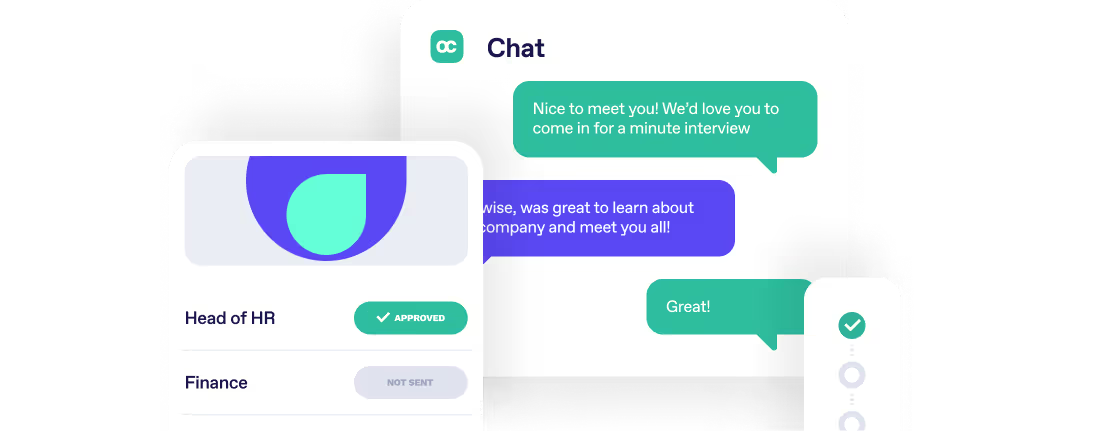Q&A with Wagestream: Why Companies Should Embrace Financial Resilience



Aside from the obvious, remote working, this situation has also exposed the need for companies to digitise recruitment, fully embrace employee well-being and invest in a way to support staff financially.
With that in mind, we have teamed up with Wagestream to bring you helpful information and content on why and how to effectively modernise how companies pay their employees and put employees on a path to financial resilience. Today we discuss financial resilience with Wagestream CEO, Peter Briffett.

Q1. What is financial resilience?
For us, financial resilience is all about having access to the right tools and empowering colleagues to build towards a secure financial future. Financial resilience isn’t particularly about how much money you have, but more about how you manage the money you do have and how you feel about your finances. Not being financially stressed is the key test of resilience.
Often, traditional financial institutions seek to only take from us and our finances can be the source of the most stress in our lives. If we can help to reduce that stress and provide employees with financial stability, that can be really powerful for both employee and employer.
What we have found is that organisations who seek to improve the financial resilience of their colleagues make a lasting and positive impact on the whole organisation.
Q2. Why has financial resilience become so important for both talent attraction and retention?
Firstly, financial worries have become much better understood in recent years. Our emotional and mental connection with finances means that they have a significant impact on how we are at work. Almost half of people in the UK say that financial worries cause them the most stress in their lives and 48% say that they are distracted by their finances at work (PWC).
More and more businesses are now waking up to this and the potential that the right kind of financial support can have. By helping staff on their path to financial resilience, organisations can look to create a stronger bond with their people, but also strengthen their employer brand and attract new talent.
And we’ve found this to be true. Organisations working with us have seen up to 16% reduction in attrition compared with the previous year. When Oxford Economics puts the cost of advertising, recruiting, and training a new staff member at £5,433, there’s considerable saving to be made here.
Helping staff with their financial resilience is a win-win. It’s good for employees and it’s good for businesses. For any organisation looking to retain their best people and recruit the top talent, it’s a no-brainer.
INSERT-CTA
Q3. What impact has COVID-19 had on people’s financial well-being?
Financial worries are always something that’s going to affect employees. What the outbreak has done has exacerbated some of those underlying issues and exposed more and more people to financial risk.
More than half of UK consumers started 2020 carrying debt. By April it was predicted that UK households would see a £45 billion fall in cash available for essential spending due to the outbreak. This is set to have a devastating impact on the financial resilience of people throughout the UK and we’ve no idea yet just how long this economic downturn will last.
Entire industries may take up to 10 years to get up and running and that will have a huge knock on effect for people's earnings. There’s a real opportunity here for organisations to step in be that financial lifeline that people will be looking for.

Q4. What advice would you give to employers thinking of implementing a financial well-being plan for employees?
The first step is for employers to really think about what the new working world will demand. As we suggested earlier, the financial resilience of your staff is at a critical turning point right now and you have the opportunity to make a real impact.
One of the most powerful ways employers can do this is by looking at the way they pay their staff. It’s something that hasn’t changed for decades; the majority of the working world are paid monthly, leaving many financially exposed and unable to plan for the future.
The feast and famine effect of the monthly pay cycle means, on average, that 43% of disposable income is spent within the first 24 hours of payday. This exposes millions to payday lenders and negative cycles of debt every year.
The way we get paid is ripe for innovation and could return a strong loyalty and engagement dividend for employers. Running payroll more frequently is not an option for many, so employers need to look to innovative technology that sits between them and their staff to encourage more flexibility and access to the right tools and resources.
What’s more, 14% of all UK bank customers have at least one online only bank account. Any financial well-being strategy looking to keep up with this trend will need to include tools and resources that are app based.
For more information on how to design a programme that genuinely works, click here.
INSERT-LINE
Interviewee: Peter Briffett, connect here.
About Wagestream: Wagestream believes in better financial resilience for all - this means having access to the right tools and services so that employees can start to build a secure financial future. Charity-backed, we design all our products and solutions with financial resilience as the key guiding principle - guaranteeing a lasting and positive impact on your organisation.
Find out more @ www.wagestream.com
Summary Points
We have teamed up with Wagestream to bring you helpful information and content on why and how to effectively modernise how companies pay their employees and put employees on a path to financial resilience.
- Q1. What is financial resilience? Financial resilience is all about having access to the right tools and empowering colleagues to build towards a secure financial future. Financial resilience isn’t particularly about how much money you have, but more about how you manage the money you do have and how you feel about your finances.
- Q2. Why has financial resilience become so important for both talent attraction and retention? By helping staff on their path to financial resilience, organisations can look to create a stronger bond with their people, but also strengthen their employer brand and attract new talent.
- Q3. What impact has COVID-19 had on people’s financial well-being? Financial worries are always something that’s going to affect employees. What the outbreak has done has exacerbated some of those underlying issues and exposed more and more people to financial risk.
- Q4. What advice would you give to employers thinking of implementing a financial well-being plan for employees? The way we get paid is ripe for innovation and could return a strong loyalty and engagement dividend for employers. Running payroll more frequently is not an option for many so employers need to look to innovative technology that sits between them and their staff to encourage more flexibility and access to the right tools and resources.
Simple. Beautiful.
Recruitment Software.
HR updates sent straight to your inbox
You might also like...


Manage your entire hiring process simply, from engagement to management, hiring and onboarding







Simple. Beautiful.
Recruitment Software.
Recruitment Software.






